|
I couldn’t go to sleep. Spending time in a crowded hospital with a dear friend who was dying left me restless and lying awake looking for God in the dark and finding nothing. It was the proverbial last straw. Too much. “What the hell?!...Does God even exist?!” I bitterly thought in the emptiness. The absurdity of being a spiritual director seemed to mock me in that moment. Every image of God I ever held did nothing to comfort me and the absence of images and comfort left me in a place of nihilistic rage and deep sadness. Even though I had read John of the Cross and Julian of Norwich by her hospital bed, recalling conversations we had enjoyed over the years about their (and our) experiences of love in the darkness, here I was struggling in my own dark night. “What a waste of my life! What a charade!” I thought as I recalled my life of being devoted to God and tending to the spiritual life, both mine and others, only to stare into the void of meaninglessness (and not for the first time). Furrowed brow, eyes squeezed shut, the rest of my body now as tense as my face, silently shouting—"Where is God in this chaos?” “Why even ask? Life is showing me there really is no God at all.” After a while, somehow, something small slipped in through the tightness and whispered, “God IS Chaos.” Before I could think, my brow and eyes started softening. My body noticed the truth before my brain could think about refuting what had just been spoken to me in the dark. Then an image appeared in my mind’s eye—Kali. I couldn't remember much about her, only that she's the Hindu goddess of chaos and destruction leading to life. Images of her can be quite disturbing (especially for those of us Westerners who don't know the symbolism) and here she was showing up in the stillness of night! Later I would read that in Hinduism, she is the ultimate manifestation of Shakti, the primordial energy, the mother of all (watch this video for more). Kali’s dark skin stands for this chaotic, life-birthing energy. 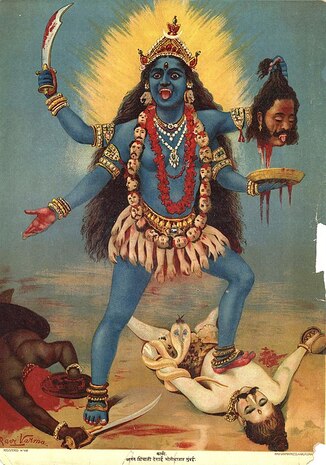 "Hearing ‘God IS Chaos’ and remembering the Hindu goddess, Kali…there was something strangely settling in that, and I was able to fall asleep,” I later texted a friend, a nurse experiencing burnout in a crowded hospital (she went on to write a piece of prose for her doctoral class assignment based on our text thread). __________ The next morning, I walked outside in my pajamas. The stifling heat, sticky humidity, and earsplitting cicadas continued the conversation— I was surrounded by the sound and sensations of chaos. I forced myself to sit in the discomfort. From that place I wondered if I had written anything down from the Icon-Writing Retreat my dear friend and I had attended together a couple of months earlier. I went inside, grabbed my journal, then returned to the front porch to find the dates of that weekend retreat. __________ In the first place, I had no time to go on that retreat. Life had been exhausting and the thought of painting anything in that state added to my overwhelm. In the second place, I wanted to spend time with my dear friend, knowing that stage 4 cancer was eventually going to rob us of time (by the way, Kali's name means both "darkness" and " force or fullness of time"). So I picked her up on a Friday morning in May and went. _________ There it was, May 13th-15th, along with a short entry for each day (the last one being, "I am so glad I went."). I was grateful that I had written down a few things, even though they had been forgotten in the rush of life’s challenges. I recalled how my friend and I sat side-by-side looking at the blank wood that our icons would be painted on and while she felt excitement, I felt dread. How was I going to do this?! The instructor told us to fill our brushes with paint and then said, “Relax, because the first stroke when it comes to painting an icon is called The Chaos Stroke!” Immediately I softened and a hint of excitement even found its way inside my weary head. The Chaos Stroke is named so because it represents the primordial energy at the beginning of Creation found in the first chapter of Genesis in the Hebrew Bible. Our spontaneous swirls and waves echoed the Spirit (or Wind or Breath) of God, moving over the surface of the deep, dark waters. And like the Genesis account, step by step, day by day, things started appearing where before there was nothing but potential in the eye of the Beholder. From the chaos within me, from the chaotic swirls on my wooden panel, emerged a rendering of Rublev’s Trinity from the 15th century! 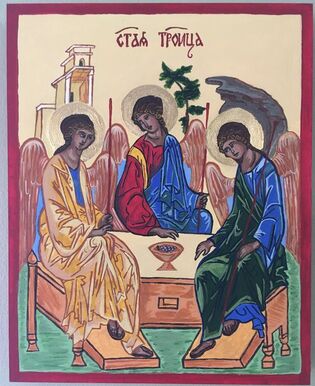 My finished icon of Rublev's Trinity My finished icon of Rublev's Trinity I smiled sitting on the porch, in awe of the synchronicities…chaos, Kali, cicadas, a journal entry about the Chaos Stroke from an icon retreat attended with this friend whose impending death had ushered in another layer of chaos... Nothing had changed. It still felt awful to know my friend was going to die (and she did, less than 24 hours later). And the things that were a mess in my life, were still a mess. Nothing had changed this, and yet… Being open to “God Is Chaos” had strangely allowed comfort and brought the awareness that God was also “With Me in Chaos.” The latter recalls the message gifted us through the person of Jesus the Christ, who was called Emmanuel, God-with-us. Light began shining in my darkness once more. Holding the paradox of "God Is Chaos" and "God With Us in Chaos," I remembered the expression that emerged on the face of the center figure, the Christ, in my friend’s painting of the Holy Trinity—we laughed and called him the “Mischievous Jesus.” He knew something we did not...yet. Even now, words fail to describe how, in darkness and in light, I keep being beckoned into the at-times-difficult, divine dance that Rublev painted years ago, his brush beginning with Chaos. For some of us, Christmas is not experienced as "The Most Wonderful Time of the Year." For all who find themselves in this place, my husband, Russ, and I have offered The Longest Night of the Year Service on or around the Winter Solstice. A friend suggested it to us and after the first gathering in a small, country church over a decade ago, we knew it was something we wanted to continue. The service offers a safe space to acknowledge mixed feelings surrounding the holidays, to join together in lament and longing, and to simply step away from the rush of the season and breathe. Usually Russ offers only instrumental music during the short, 30 minute service but last year we offered the service via Zoom and he created a video with his only song with lyrics, "Some of Us," on his album, The Longest Night. Click on it below, listen and watch. Perhaps there's an image or lyric that connects with your own lament and longing, something that speaks to your soul. As to this year, we are offering the service online once again knowing more people can participate this way. I invite you to join me and a handful of others from Wisdom Tree Collective and Friday Morning Centering Prayer as we allow instrumental music, art from local/regional artists, laments and longings from Scripture, and Creation's own rhythm to companion us in the dark. Tuesday, December 21st 7:30-8:00pm CT Email me for the Zoom link. With darkness falling earlier, I have looked forward to the growing number of lights as I drive through my neighborhood. The display increases with each passing day!
Childlikeness, anticipation, playfulness, joy, and magic are part of the season. So is pressure, overstimulation, exhaustion, loneliness, anger, and grief. Some years it is more one than the other, isn’t it? Other times it is a mix. The good news is that God is with us (& found) in both—moments that look & feel light and those that look & feel dark. Said the Psalmist (139): 11 If I say, “Surely the darkness will hide me and the light become night around me,” 12 even the darkness will not be dark to you; the night will shine like the day, for darkness is as light to you. Our culture does a good job celebrating God in the light, but rarely guides us to discover God in the dark, especially during Christmastime. For some, the idea of God seeing us in the dark inspires more fear than comfort! However, the Psalmist is extolling the wonder of being seen by God, even when he cannot "see" God. When all is dark around us, God is still there, within and without. Do you have the inner eyes to see (& receive comfort)? Perhaps it is time to let yourself befriend the darkness or rather let yourself be befriended in the dark.
 It had not even been 24 hours since she got the news her cancer was back. Whenever I have a cancellation, I contact those who are on my waiting list to see if anyone wants the spot. In October, a person I had not seen for a long while got in touch with me saying she just had a feeling she needed to begin spiritual direction again. I had no openings but promised I would contact her when one became available. A couple of weeks later, I happened to have a cancellation and she was able to arrange her schedule to meet with me later in the week. She had no idea when we set that appointment that she would be sharing news about the return of cancer. Last week I wrote about friends who have terminal illnesses and wake up happy and grateful. But when the news is fresh, that’s probably not how you’re going to wake up. Scared and angry is more like it. During our session of Reiki and guided prayer, I asked her if she could let God be angry with her about the news she had just received. “God doesn’t get angry,” she said. “Well then you haven’t read the prophets,” I replied. “Really…” she said with a mix of surprise and sarcasm. “Yes, really, I imagine God damning this prognosis to hell. I want to yell: God, damn it!” She smiled wryly. And then her imagination began to unfold and tears mixed with words flowed, as she let God into her anger. Sometimes we wake up happy and grateful. Sometimes we wake up scared and angry. God can join us in both. Both can be holy as we allow God into every part of our lives. Even though we may know God is always present, we often live as though God is far off and we are on our own. Or we might think that God expects us to be hopeful and happy so will wait until we have a bit more gratitude before joining us. This simply is not true. The Creator who endowed us with the full-range of human emotions, expects us to express them. And every single one of them can be pathways to prayer and to the very heart of the One who made us. Rather than running and hiding through self-sufficiency, self-loathing, or a smile, when the Divine Presence asks, “Where are you?” let’s be honest. “Here I am!” we can say and then name where and how we really are—angry, sad, scared... Let God in, for God knows it’s not good for any of us to be alone. 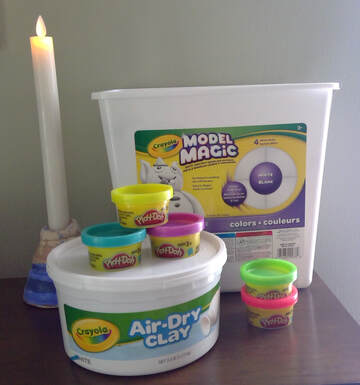 Feeling stuck with a looming decision? Stuck in or overwhelmed with a feeling? Curious to discover the wisdom in your nighttime dream (perhaps about your looming decision!)? Or maybe you resonate with my daughter who recently said, "I just can't do words or thinking right now." No matter how old you are, it's time to get out the playdough! (or clay or Model Magic, your choice) And no, you do not have to be an artistic type of person! Let that inner kid of yours who knows how to squish, twist, pull, flatten, bend, and roll grab a handful of playdough. Now pick one of these 3 practices and see what happens: Awareness Examen with Playdough Notice what literally and figuratively emerges as you enter into this 16th century prayerful review of your day or week.
Moving Through Feelings with Playdough Rather than trying hard to let go, discover what happens when you move through your emotions.
Sculpt a Dream Image Dream images are often metaphors and symbols of different parts of ourselves/our lives. They offer us wisdom for waking life as we tend to them.
Who knew playdough could be part of our spiritual practice and way of discernment?! Playdough is not just for kids! Actually, it's for all of us kids at heart who often get stuck in our heads yet are open to the creative, childlike ways the Spirit offers freedom and wisdom. I don't have much to say today. Although I have much on my mind. It's the one anniversary of the destructive tornados in my city of Mt. Juliet, TN, and surrounding area, followed by news of the pandemic days later. Maybe you are just as astonished and speechless as me when it comes to how much the world has changed in one year. I read Ecclesiastes with different eyes, I can tell you that! 3 For everything there is a season
A look back at an animation my daughter began creating on the day of the tornados to help her work through her own feelings and to find a way to help others. Sometimes what helps our own soul, helps other souls, too. “Are you afraid of leaving your congregation alone in the dark with God?” I asked a pastor who simply could not understand why I would blow out all candles during a Longest Night Service.
He’s not alone. We tend to rush to bring light into darkness in the same way we rush to fill silence with sound. Pastors, especially so. They feel the weight of proclaiming and reminding. Wanting to make sure people know there is hope and “Jesus is the Light,” they constantly talk about hope, repeat Jesus’ name, and keep the lights on, candles burning. Honestly, they’re just as afraid of the dark as most. As a Spiritual Director, I’ve had plenty of pastors on silent retreats and plenty who don’t want to come at all because silence is scary. It seems unproductive and too revealing…which is more frightening?! Given my years as a church staff member and years working with church staff members, both are equally so. So much so, some never dare to come or they walk away from the discomfort never to return to a silent retreat. But discomfort is a doorway to deep transformation. And pastors can be like helicopter parents trying to shield those in their charge from the awkward and uncomfortable feelings that come with silence and darkness. But, have you ever experienced God in silence? In darkness? I have. I’ve also watched and listened to stories of how others have experienced God in silence and darkness. And guess what naturally arises? Hope. And guess where people discover the Light of Christ? Arising in their midst, even from within their very selves! After all, God is everywhere--within and without. The Psalmist proclaims in Psalm 139:12, “Darkness and light are alike to You.” Then he goes on to talk about God forming him in his mother’s womb (another place of darkness where God is present and at work). No lights needed. God is there. And are we not born from our mother’s womb and continue in the womb of the God in whom we live, and move, and have our being? Light and dark are part of every life and God is with us equally in both. Jesus taught that the Kingdom of God is in our midst, even within our very being (Luke 17:21). So we do not have to be afraid of the dark, the inner light never goes out. It just may take some time (& discomfort) to become aware of it. 14th century Persian poet, Hafiz of Shiraz, echoes this reality when saying, “I wish I could show you when you are lonely or in darkness the astonishing light of your own being.” For some reason this scares us, so we look to pastors to talk to us about the Kingdom rather than experience it for ourselves. However, when a pastor (or anyone!) dares to sit in the discomfort of darkness and silence, allowing uncomfortable feelings to emerge and giving themselves permission to rest from all the doing, they begin to radiate trust. This trust allows them to entrust those in their care to the discomfort of silence and darkness because they know God will meet each person in whatever way is needed. Right before an overnight silent retreat a person came up to me after dinner and in all seriousness said, "I'm on the verge of a panic attack the closer we get to going into the silence, I don't know if I can do this." I replied, "I can see why it's scary to you. Know there is a nurse here if needed. And, you're free to leave, but I hope you'll give the silence a try." The person stayed and now they sign up for almost every silent retreat! In befriending silence and darkness, the discovery is made that rather than be afraid of them, they in fact, can be a gift—an opportunity to be still and know that God is everywhere, in our mist, within our very being. A few weeks after talking to the one pastor, another emailed me and asked if her Presbyterian Church in North Carolina, could use my liturgy for their Longest Night Service. Mine had been the first liturgy she had come across that included blowing out candles and letting people simply be with God in the dark. She thought it would be powerful, especially this year, to let her congregation experience God’s presence in the darkness. I could not help but smile. _____________________________________
Advent is a time of gestation. Much like the discomfort and anticipation of pregnancy, we wait on the arrival of what is deeply hoped for and anticipated.
A few weeks ago I was in a sensory-deprivation tank floating on 1500 pounds of salt. It's supposed to be (and usually is) relaxing but that day I kept squirming around...like a baby in the womb. Last year I went to a Benedictine Sister for both Spiritual Direction and healing touch at a monastery where I would be facilitating a retreat the following day. During the time of laying on of hands, when she got to my abdomen she said, "We are in the womb of God who is birthing us. Birth pains are difficult, but we WILL be born." I teared up as I heard these words of deep hope, because I had been restless then, too. In liminal space, I felt the strain of being "betwixt and between," especially in relationship with my own religious institution where the leadership continued pulling back from engaging contemplative practice with each passing year. Knowing the transformative power and wholeness found in contemplation and action, I continued to hope. What this hope looked like in regard to my faith community, I found myself full of questions with no easy or sure answers. Her words of hope spoke to my soul but did not take away the struggle. Contrary to idealistic views of hope, theologian Jurgen Moltmann (known as the theologian of hope), writes in Experiences of God, "...whenever faith develops into hope it does not make people serene and placid; it makes them restless. It does not make them patient; it makes them impatient. Instead of being reconciled to existing reality they begin to suffer from it and to resist it." The Sister's words of hope gave me deep permission to accept the struggle and discomfort as part of the process of rebirth. When I realized that it was not wrong, but natural, to be squirming in the float tank, I found myself smiling with a newfound acceptance. Instead of trying to be still, I playfully allowed my arms and legs to stretch and move however they wanted. It felt freeing. If I could allow this restlessness in the float tank, how about other in places of my life? After all, Saint Paul reminded the people in Athens of the perennial truth of their own Greek poets when he quoted, "For in him we live and move and have our being." Sometimes we rest, sometimes we walk, sometimes we wriggle in the womb of God. _____________________
“Must be hard being 10 and already going through dark night of the soul,” 14-year-old, Lainey, said as the two of us drove back from her fencing lessons. Her comment about her brother caught me off guard. As a Spiritual Director, I companion adults going through Dark Night of the Soul, but I had not considered how children may, too. I know that children suffer depression which in adults can coincide with Dark Night, but I had not seen Dark Night through a child’s eyes (even though our most memorable moments with God often happen when we are children). For those not familiar with the concept, Dark Night is a stage in the spiritual journey that Saint John of the Cross experienced and wrote about in the 16th century. He gave words to the “spiritual crisis” that occurs for those seeking union with God or to embody Perfect Love. Whether happening gradually or initiated through a tragedy or hardship, Dark Night can be felt as emptiness and dryness. Our go-to spiritual practices no longer “work.” Those activities and places of belonging that once brought us enjoyment, no longer do so. We suffer disappointment, doubt, disorientation, discomfort, disillusionment, and even the utter disintegration of our thoughts and feelings about God, ourselves, and life. In experiencing this loss and grief, depression can occur. We ask questions like, “Who am I?” “Who and where is God?” “What’s going on?” “Why can’t things go back to ‘normal’?” “What is normal anyway?” “Will this ever end?” This liminal space is entered into many times in our lives as we find ourselves in places and situations we would rather not be (like in a pandemic!). We are in that “in-between” of who we were before and who will be after…it’s definitely uncomfortable. My 10-year-old joins the rest of the planet in this communal Dark Night of the Soul. He’s asking, “Who am I?” “Who are my friends?” “Do I even have friends anymore?” “Will friends recognize me when I do go back to school?” “Is virtual school even school?” “Will I ever play baseball or basketball again?” “Will I even love sports again?” “Things are too stressful in the world right now, is it always going to be like this?” Now here’s what makes Dark Night different from depression. When depressed, it’s a good idea to seek counseling and/or receive medication which hopefully helps us emerge from the darkness of depression with great relief. And while there may be inner relief from the suffering (which is something to celebrate), there may not be inner transformation. One may be grateful to simply return to oneself. During a Dark Night, rather than seeking a way out of the darkness, we are led deeper into it (a Spiritual Director is really helpful in the dark!). This is the place where God loosens our attachments to all we may mistake for God, life, and our true selves. It can be painful to have these attachments revealed and painful to let go of them. After all, we might really love being known as the athlete, whether spiritual or baseball! We might cherish the feeling we get in imaging and relating to God in a certain way. However, when we emerge from Dark Night, we not only find relief but we are also transformed. We no longer see or exist in the world in the same way we did prior to the darkness. In other words, we do not return to ourselves, but are a new, truer Self! An expanded heart is the fruit of the Dark Night. We see God, ourselves, and the world in deeper and wider ways and we are free to love God, ourselves, and the world in deeper and wider ways. A different 14-year-old girl shared an image that came to her during our Girls’ Group-time of listening to the instrumental song, Unfolding. It offers a beautiful and striking image of what it’s like to come through Dark Night of the Soul: I saw a newborn fawn. The fawn had outgrown the only world it knew and she was witnessing the moment of it breaking free of the old and opening its eyes in the new one. As her words convey, the birth process is messy--so is being “born again” into a new way of being and seeing! This is my hope for our world. In the words of Matthew Fox, “A pandemic is a terrible thing to waste.”
In the meantime, we have the birth pains. Last night I talked with my son about his struggles and the possibility of counseling. With his permission, I share what he said: “Mom, I don’t think I need counseling right now, I have no problem discussing my feelings with you and Dad. And yeah, I’m learning new things about myself, but I’m mad and nothing helps. I hate sports right now. Lainey’s discovered a sport and mine are gone. I can't do anything right. I don’t know when it will end, maybe it never will. But I don’t need any other voices right now, what I need is you.” At 10, he’s being led deeper into the dark and I’m going to sit with him there, as a Spiritual Director and Mom. Together, in this womb-like darkness, we’ll wait and trust that the God we cannot see or feel, is truly Emmanuel, “God-with-us.” Anxiety. Anger. Heaviness. Headache. Nausea. Nerve-pain. Tension. Tears.
My 14-year-old woke up way too early this morning and as we met in the hallway both of us bleary-eyed, she said, “Ugh, I’m feeling everyone’s collective stuff.” “I hear you,” I replied. This is normal. We are all interconnected so you’re not alone today if you are feeling more than your normal share in this liminal space. Jesus felt his people’s collective pain. He shares in our suffering. However, at this point, unlike Jesus, we often go searching outside ourselves for a remedy that can only come from a deeper place within. Understandably, we want a quick fix. We want to feel better and we want others to feel better. So we are apt to compulsively scan the horizons of social media, news, books (even the most holy ones!), and other people (even the most holy ones!) looking for “good news” or at least a reminder that we are not the only burden-bearers. But no amount of memes, quotes, or conversations can offer what that pit in our stomach is crying out for. It knows something, that discomfort, that pain. It has stories to share (for our bodies hold memory). You actually don’t need any new insights, you need to trust the ones you already have! So what do you already have? What do you know in your depths? I trust you know something to be true in your bones. What is it? Here are some additional ways to listen to the wisdom within (God’s own Spirit dwelling within your own being, your own story, your own body).
By the way, when I asked my daughter what she knew to be true in her bones, her worried brow immediately softened as perennial wisdom rushed from the depths to the surface. She sang, "Don't worry about a thing. 'Cause every little thing gonna be alright." Bob Marley, Julian of Norwich, Saint Paul, and Jesus, would all agree. |
AuthorKasey is a scarf, ball and club juggling spiritual director just outside of Nashville, TN. Play helps her Type-A, Enneagram 1 personality relax, creating space for poetry and other words to emerge. She also likes playing with theological ideas like perichoresis, and all the ways we're invited into this Triune dance. Archives
January 2024
Categories
All
|
By clicking “Sign up for E-News” I consent to the collection and secure storage of this data as described in the Privacy Policy. The information provided on this form will be used to provide me with updates and marketing. I understand that I may modify or delete my data at any time.
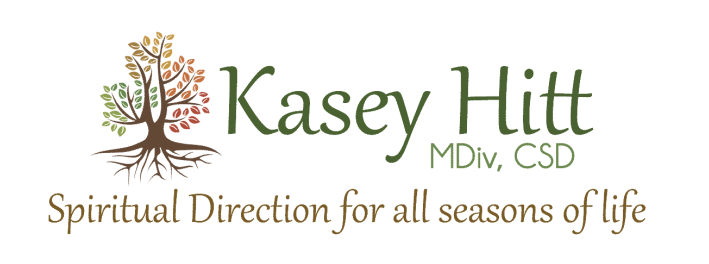
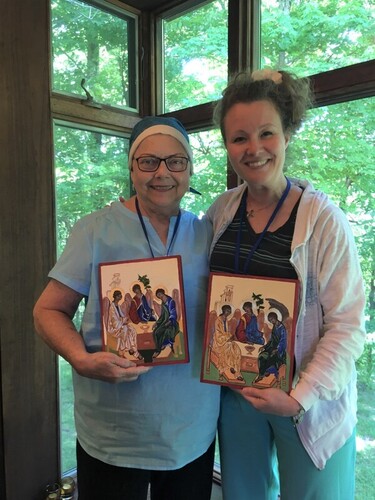
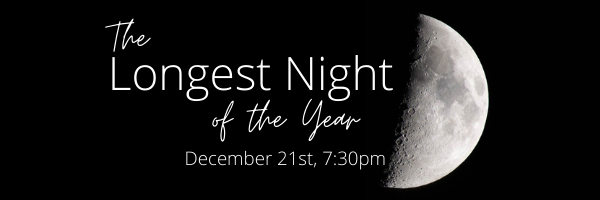
 RSS Feed
RSS Feed

